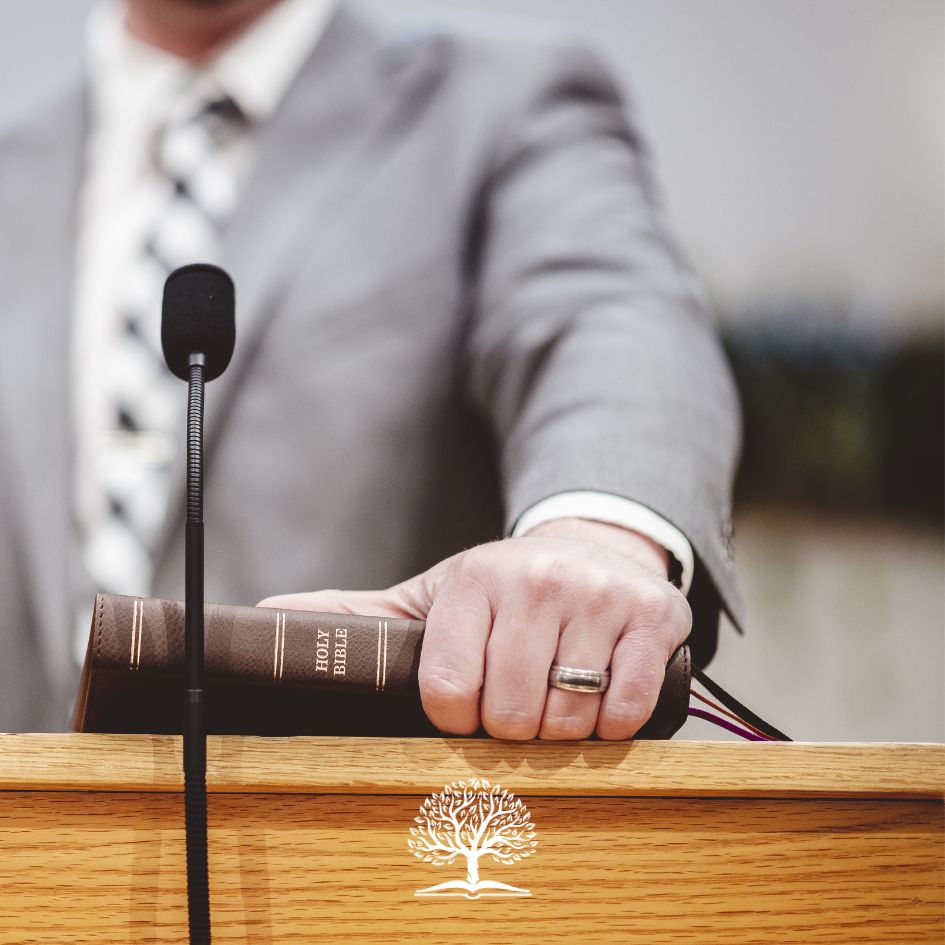
“Preach the word” (2 Tim. 4:2), Paul charged Timothy. The Puritans took this charge seriously. The insistence of the Puritans on the primacy of preaching in the church was rooted in their conviction of the divine inspiration, authority, power, and purity of the Word. Being deeply convinced that God builds His church primarily by the instrument of preaching, the Puritans made preaching central to the worship of the church. In this they followed the Reformation as they put the pulpit, rather than the altar, at the center of their churches, and put preaching, rather than the sacraments, at the center of their worship. Richard Sibbes (1577–1635) wrote, “Preaching is the ordinance of God, sanctified for the begetting of faith, for the opening of the understanding, for the drawing of the will and affections to Christ.”1Richard Sibbes, The Fountain Opened, in The Works of Richard Sibbes (Edinburgh: Banner of Truth, 2001), 5:514.
Over five decades ago, Martyn Lloyd-Jones (1899–1981), the gifted expositor known for setting logic on fire in his preaching, and an avid student of the Puritans, lamented:
We are living in an age which is querying everything, and among these things it is querying the place and the value and the purpose of preaching. In increasing numbers people seem to be depreciating the value of preaching, and they are turning more and more to singing of various types and kinds, accompanied with various kinds of instruments. They are going back also to dramatic representations or recitals of the Scripture, and some are going back even to dancing and various other forms of external manifestations of the act of worship. All this is having the effect of depreciating the place and value of preaching.2D. Martyn Lloyd-Jones, The Puritans: Their Origins and Successors, Addresses Delivered at the Puritan and Westminster Conferences, 1959–1978 (1987; repr., Edinburgh: Banner of Truth, 2014), 373.
The primacy of the Word is being displaced while unauthorized imposters, such as entertainment, usurp Christ’s rightful place in the church. This downgrade that is causing the modern church to stray from the Reformation’s attention to biblical exposition would have been detested by the Puritans.
Lloyd-Jones says of the Puritans that “to them, preaching was central, and the most important thing of all.”3Lloyd-Jones, The Puritans, 375. Unleashing the written Word through the preached Word served to amplify the meaning of the text, making it come alive and work efficaciously by the Spirit’s grace in ways that ordinarily go beyond our private Bible reading. Lloyd-Jones quotes the Puritan Thomas Cartwright (1535–1603), who said, “As the fire stirred giveth more heat, so the Word, as it were, blown by preaching, flameth more in the hearers than when it is read.” Commenting on that, Lloyd-Jones said, “The real function of preaching is not to give information, it is to do what Cartwright says; it is to give more heat, to give life to it, to give power to it, to bring it home to the hearers.”4Lloyd-Jones, The Puritans, 376.
Thomas Boston would have agreed: “It is the mercy of the church of God, that they have the word of God as a lamp always burning: but the preaching of it is the snuffing5That is, the trimming of the lampwick. of the lamp, by which it gives the greater light.”6Boston, An Illustration of the Doctrines of the Christian Religion, in Works, 2:423. In another place, Boston wrote,
The word of God is the sword of the Spirit. We cannot want [lack] it in an evil hour, if we mind to strive against the stream. It is true, the word read is the sword of the Spirit as well as preached. But the preaching of it is the special mean[s] to draw it out of the scabbard, and put it into the hand of poor sinners against their enemies. Thus the Eunuch, after reading the word, replied to Philip’s question, “How can I understand it, except some man should guide me?” And he desired that Philip do come up and sit with him for that purpose. The well is deep, and there is need of some to draw for the people, that they may drink.7Boston, “Thanksgiving For My Continuance in Ettrick” (Sermon XXVII), in Works, 3:373–74.
We too live in an evil hour. The church in our day needs reformation and revival. Biblical illiteracy is becoming the plague of a “post-Christian” culture. We must not sheathe our sword! A high esteem for Scripture will lead to giving a high priority to the public proclamation of it. Those who love God’s Word long to broadcast it abroad. We must remember that, as the Reformers taught, “through the words of the preacher, the living voice of the gospel (viva vox evangelii) is heard.”8Carl L. Beckwith, Timothy George, and Scott M. Manetsch, eds., Ezekiel, Daniel: Old Testament, vol. 12, Reformation Commentary on Scripture (Downers Grove, Ill.: IVP Academic, 2012), xiv. Every genuine reformation and revival in history was driven by the anointed unleashing of the Word of God. Where faithful, biblical, Spirit-empowered preaching prospers and is esteemed among the people, spiritual vitality flourishes. God’s Word isn’t sent forth in vain (Isa. 55:11).
The Word preached, says Thomas Watson, is “a commentary upon the Word written. The Scriptures are the sovereign oils and balsams; the preaching of the Word is the pouring of them out. The Scriptures are the precious spices; the preaching of the Word is the beating of these spices, which causes a wonderful fragrance and delight.”9Watson, A Godly Man’s Picture, 64. He says that the godly person loves the Word when it is preached because by it Christ speaks to us from heaven (Heb. 12:25) and extends His power to save us (1 Cor. 1:24). “The stamp of divine authority on the Word preached makes it an instrument conducive to man’s salvation.”10Watson, A Godly Man’s Picture, 65. Sound preaching is like sublime music to the ears of the people of God. “What was once said of the city of Thebes, that it was built by the sound of Amphius’ harp, is much more true of soul conversion. It is built by the sound of the gospel harp…. This ministry of the Word is to be preferred before the ministry of angels.”11Watson, A Godly Man’s Picture, 64.
Out of esteem for God, we should treasure the Word in all the forms it comes to us, especially when it is preached. The good we receive from the preached Word refreshes our souls like the dew that fell with the manna. The church needs, in this desperate hour, not just faithful preachers but faithful hearers and receivers of the Word (James 1:21).
Excerpt from
Thriving in Grace: Twelve Ways the Puritans Fuel Spiritual Growth
By Joel R. Beeke and Brian G. Hedges








